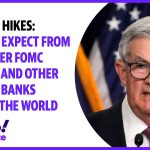By David Lawder
WASHINGTON (Reuters) -A government shutdown that could start this weekend would “undermine” U.S. economic progress by idling key programs for small businesses and children, and could delay major infrastructure improvements, U.S. Treasury Secretary Janet Yellen said on Friday.
Yellen said in remarks at the Port of Savannah in Georgia that it was crucial that Republicans in the House of Representatives take action to keep the government open and adhere to a budget deal agreed in late May.
A shutdown of broad parts of the government would start on Sunday as the new fiscal year starts without new spending legislation from Congress. Chances of a shutdown increased on Thursday as the House pursued partisan spending cuts and the Senate advanced separate legislation to temporarily extend spending.
“The failure of House Republicans to act responsibly would hurt American families and cause economic headwinds that could undermine the progress we’re making,” Yellen said.
“A shutdown would impact many key government functions – from loans to farmers and small businesses, to food and workplace safety inspections, to Head Start programs for children. And it could delay major infrastructure improvements,” she said, adding that such investments boost economic growth.
Her comments echoed those of the White House’s top economic adviser, Lael Brainard, who said on Friday that a government shutdown was an “unnecessary risk” to a resilient economy now with moderating inflation.
Brainard told CNBC that avoiding a lapse in government funding was “completely in the hands of the House, the House Republicans in particular,” and that risks to the economy include active military service members going without pay, air traffic delays and poor Americans being unable to access government benefits.
Brainard said U.S. Commerce Department data showing underlying annualized inflation excluding food and energy fell below 4% for the first time in more than two years in August was “absolutely good news” for the economy.
“The main story of all the naysayers was that you couldn’t get core inflation to come down without a big increase in job destruction. That is not what we’ve seen,” Brainard said. “We’ve seen continued job creation and inflation at the core has come down into the range that we saw pre-pandemic.”
Brainard said a shutdown would take a toll on workers who would be asked to provide “essential services to the American people without pay.
“It’s a completely unnecessary risk to an economy that’s otherwise proven so resilient,” she said.
Read the full article here




